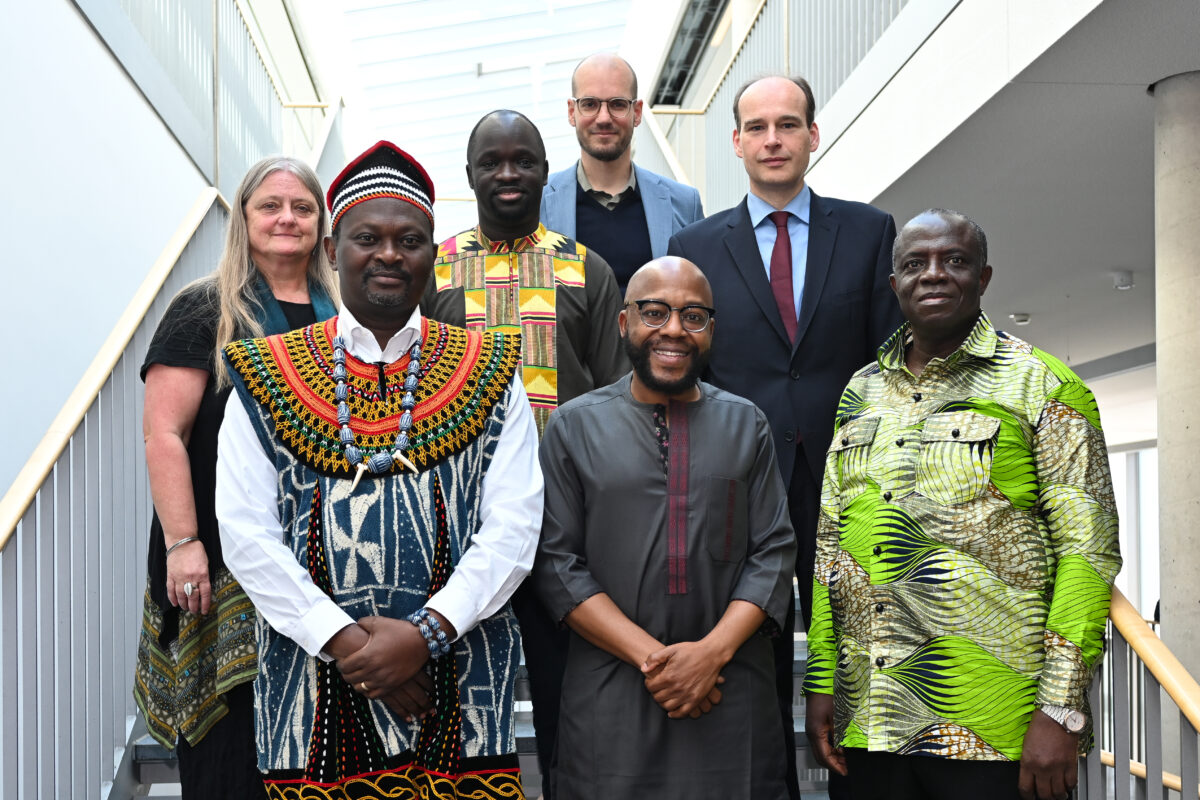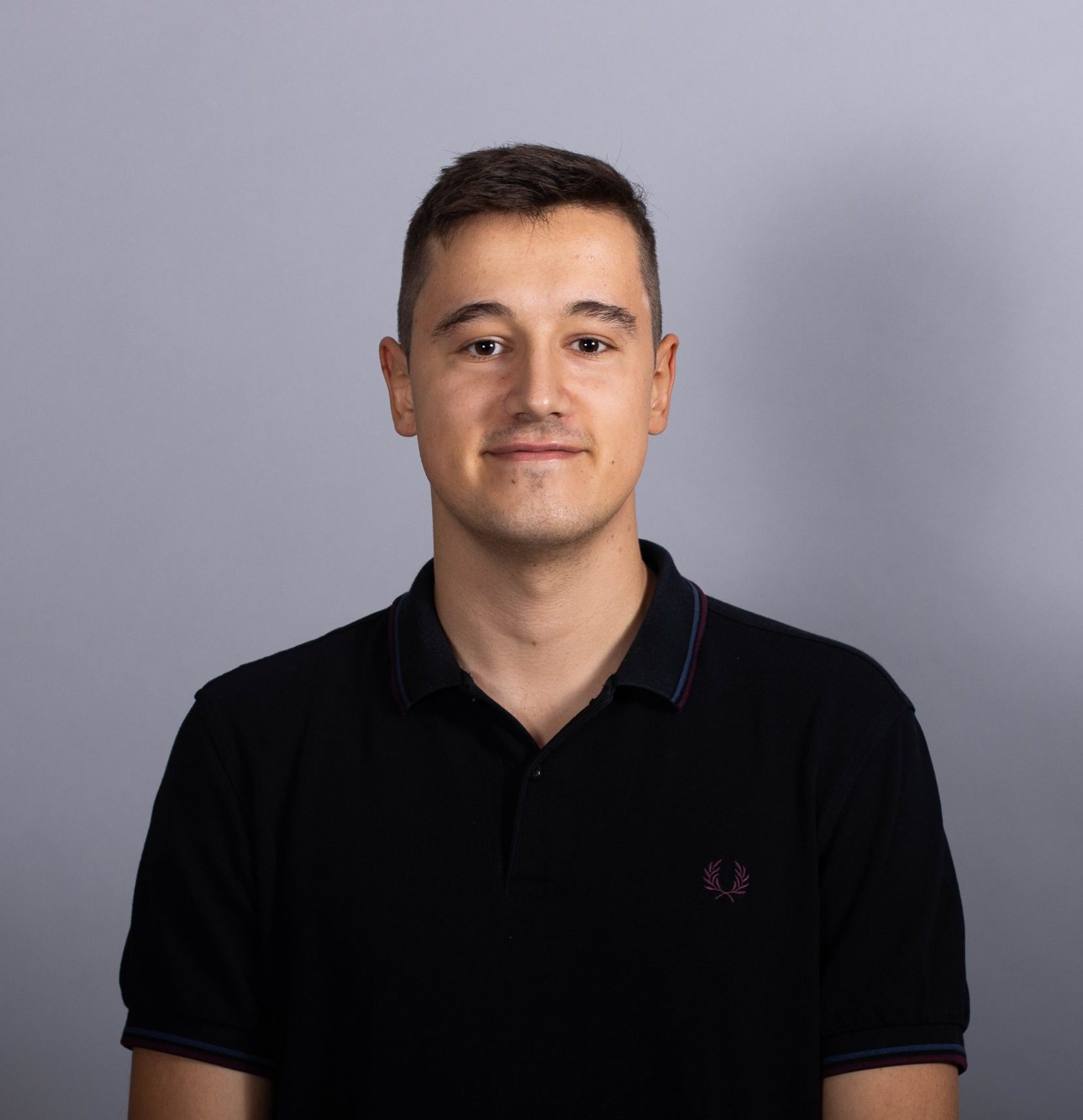Introduction
On June 10, 2024, the Chair of African Legal Studies (ALS) at the University of Bayreuth had the unique opportunity to host two distinguished representatives from the African Court on Human and Peoples’ Rights: Dr. Robert Eno (Cameroon), Registrar of the Court, and Prof. Dr. Dennis Dominic Adjei (Ghana), a sitting judge. This key institution of the African Union was established to safeguard human rights across the continent. The visit, initiated by Prof. Dr. Thoko Kaime, provided students and the academic community with valuable insights into the Court’s work. More specifically, the presence of these court officials personified the theoretical discussions on the role of the African Court on Human and Peoples’ Rights, which is one of the seminars under Human Rights in Africa taught in the Summer Semester at the Chair of ALS.
In addition to participating in a public seminar on the special protection of human rights in Africa, Dr. Eno and Prof. Adjei took part in a roundtable discussion with experts such as Prof. Dr. Eva Lohse and Dr. Patricia Boshe on the role of comparative law and jurisprudence in regional human rights systems. Later, in a more relaxed setting, they were interviewed by Merlin Mitschker, Manager of the ALS Blog. In the following interview, they discuss the Justice’s work at the Court, the challenges and opportunities for human rights protection in Africa, and his personal experiences and career path.
Interview
First of all, thank you very much for taking the time to speak with me today for the African Legal Studies Blog. The blog aims to share research and foster international exchange at the chair. We invite visiting professors, PhD students, and excellent students to publish on the blog. We publish every Friday, and it’s a great platform to interview you and give our readers some insights. My first question is: how would you describe your job to someone who isn’t familiar with the legal world? Some readers might not know what you do. How would you explain it to them?
I am a judge at the African Court on Human and Peoples’ Rights and also a judge in my own country. Being a judge is a very important public role because you’re involved in the administration of justice. Judicial power is only exercised by judges, and its uniqueness resides in the understanding that you don’t exercise it for yourself but on behalf of others. In the African Court, we use judicial power for the entire continent. Being a judge means you’ve taken an oath to administer justice to anyone who comes before you, without fear, favour, or personal affection. It’s crucial to be an objective and impartial decision-maker. It’s truly a privilege and an honour to be appointed as a judge, as it means people trust you to make decisions according to the law.
What led you to this position? What was your career path?
My career started as a lawyer, and I also lectured, which I still do. After practicing law for several years in my country, which is Ghana, I was qualified to be appointed as a judge. I was appointed to the Court of Appeal. As for the African Court, judges serve six-year terms, which are renewable but not automatic. When there’s a vacancy, it’s announced, and interested candidates must be nominated by their country. To give you some background: The African Court has 11 judges, elected by the Assembly of Heads of State and Governments. Africa is divided into five regions: West, East, North, South, and Central. From each region, one male and one female judge are selected, giving us ten judges. The eleventh judge, known as the “floating seat,” can be from any region. Before I joined, the court had six female and five male judges because the floating seat was held by a woman. After I joined, the majority of judges were men, as I filled the floating seat from West Africa. However, when we make decisions, we don’t act based on where we come from or what our country thinks. Each judge gives their personal, independent opinion.
What do you enjoy most about your work?
The most rewarding part of being a judge is when a case is brought before you. Judges generally perform two main tasks: adjudicating disputes and interpreting laws and documents. When you handle a case, listen to the arguments, and finally deliver a judgment, it’s satisfying. The judgment speaks for you, and in the African Court, we usually sit as a quorum of seven, but all eleven judges may sit, unless the case involves a judge’s country. If a judge’s country is involved, they do not participate. The number of judges can be anywhere from eleven to seven, but no fewer. If fewer than seven judges sit, the case cannot proceed. Once the judgment is delivered, you feel proud because it reflects your contribution to justice.
What role does the African Court play within the broader framework of international African legal institutions?
The African Union has several agencies, and the judicial wing is the African Court on Human and Peoples’ Rights. It’s currently the only functioning judicial body, and it covers the entire continent. However, there’s a condition: you cannot impose a court on a country. Each country must voluntarily submit to the court’s jurisdiction by ratifying a convention called the African Charter of Human and Peoples’ Rights. If a country ratifies, it agrees to allow cases to be brought against it. Eight countries have also allowed individuals to bring cases directly to the court. But it’s not automatic; individuals need permission from their country through a special declaration. Furthermore, before you can approach the African Court, you must exhaust all local remedies, meaning you have to go through your country’s courts first. For example, you would start at a district court, then the high court, court of appeal, and finally the Supreme Court. If your rights are still not addressed, you can go to the African Court, provided your country has signed the necessary protocols. Otherwise, other bodies like the African Commission or NGOs may bring a case on your behalf.
Liberia has committed to ratifying the protocol to the African Charter, establishing the African Court of Human and Peoples’ Rights. Do you think this step could encourage other African countries to ratify the protocol?
That’s hard to say definitively, but in my opinion, it’s a good thing for countries to allow their citizens to bring human rights cases to the court. It shows that a country is committed to protecting human rights. For instance, Liberia’s decision could influence neighboring countries like Côte d’Ivoire and Ghana. Côte d’Ivoire initially allowed individuals to bring cases to the court but has since withdrawn. Benin has also withdrawn. So now, Ghana is one of the few left in the region, and Liberia joining would be significant. As human rights advocates, we see it as a positive step because it allows citizens to seek justice if their rights aren’t upheld by their country’s Supreme Court. Right now, eight countries have made these declarations, and if Liberia follows through, that number will increase to nine. It’s a step towards more access to justice.
How can we encourage more African countries to ratify the protocol?
The African Union wants every country to join the court and accept its jurisdiction. When human rights violations happen, and national courts can’t resolve them, it’s important to have a continental court to turn to. This isn’t unique to Africa. Europe has the European Court of Human Rights, with 46 judges representing 46 countries. The Inter-American Court also exists, though not every country in the Americas participates. In Africa, we have 55 countries, but only 33 have ratified the Court’s protocol. The question is, why haven’t the other 22 countries ratified? The African Commission on Human Rights has near-universal ratification, with 54 countries signed on, so why not the court? It likely comes down to concerns about sovereignty and the potential exposure of human rights issues. But promoting and protecting human rights is the goal for every country, and if they’ve signed international conventions like the International Covenant on Civil and Political Rights, it should follow that they would join the court. But it can’t be imposed on them. It’s up to human rights advocates and national organizations to encourage more countries to join.
Since it’s a matter of each country’s sovereignty. Turning to your visit here at the Chair, how important is international exchange and outreach?
It’s very important. Students here are getting a first-hand opportunity to learn from a judge of the court and the registrar. Reading articles is not the same as hearing from people directly involved. Articles might even misrepresent dissenting opinions, so our visit gives students a deeper understanding of what we do at the African Court. It’s also a chance to learn about the University’s work in human rights education and research. People often think African human rights are different from international human rights, but that’s not the case. We follow all the same international standards, plus additional protocols specific to Africa. I hope this visit will establish a permanent relationship between the University and the court, possibly even with exchange programs in the future. We could have students come to the court, and our legal officers could come here to teach. It’s a great opportunity that should be encouraged.
That sounds wonderful. For students or scholars interested in contributing to African human rights, what would your advice be?
We encourage academics and students to research and publish about the court. There’s nothing wrong with critiquing court decisions, and it’s even helpful. Critiques can be constructive or not, but they are always welcome. For a judge, reading critiques can help you reflect on your decisions and perhaps approach similar cases differently in the future.
Thank you very much for your insights and for the conversation!

